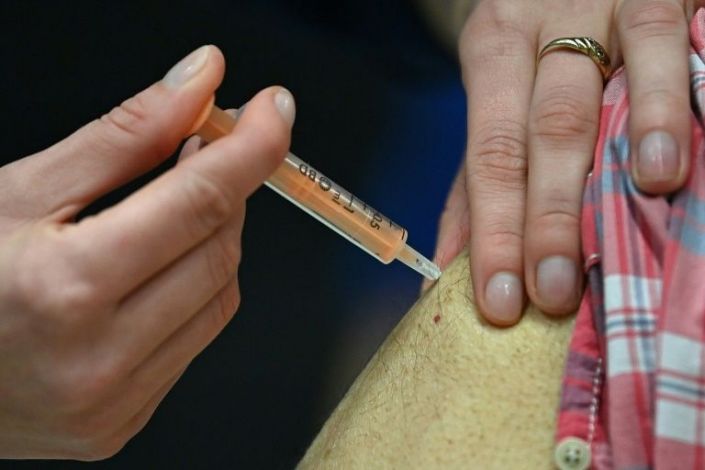Prime Minister Boris Johnson on Sunday called Britain hitting a target of inoculating 15 million of the most vulnerable people with a first coronavirus jab “a significant milestone”, as the country prepared for the next phase of its vaccination programme.
Johnson, who has faced severe criticism over his year-long handling of the pandemic, had set the ambitious aim of offering a jab to everybody in the top four priority groups of around 15 million people by the middle of this month.
That comprises all over-70s, care home residents and staff, NHS workers and the extremely clinically vulnerable to the virus.
“This country has achieved an extraordinary feat,” Johnson said in a video message posted on Twitter, noting it had been just over two months since Britain embarked on its biggest ever vaccination programme.
“We’ve still got a long way to go to. And there will undoubtedly be bumps in the road. But after all we’ve achieved, I know we can go forward with great confidence.”
The country will now start administering vaccines from Monday to those aged between 65 and 69 and the clinically vulnerable to Covid-19, with almost 1.2 million already invited to book their jabs, the state-run National Health Service (NHS) said.
Ministers have also vowed to vaccinate all over-50s by May and all adults by September.
“There is so much more to do and I urge anyone eligible to step forward and take up their appointment,” Health Secretary Matt Hancock added Sunday.
“The vaccine is our route to freedom — we will beat this virus jab by jab.”
– ‘Cautious’ easing –
Britain, which has been among the hardest hit in Europe by the pandemic, registering more than 117,000 deaths within 28 days of a positive Covid-19 test, has led the world in promptly approving the use of several vaccines.
It now has one of the highest proportions of people vaccinated against the virus of any nation — a rare success for Johnson during a pandemic in which the UK has fared badly by most other measures.
Infection rates have dropped markedly across the country over recent weeks, as strict lockdown measures have curbed previously spiralling case numbers, hospitalisations and deaths.
The improving situation has prompted calls for stringent lockdown restrictions to be lifted in early March, despite concern about the spread of virus variants that may be more resistant to vaccines.
A new 10-day hotel quarantine regime for British residents returning from 33 virus variant hotspots begins on Monday.
Johnson has said he is “optimistic” that plans for a “cautious” easing of the stay-at-home rules in England from next month will go ahead.
He has vowed to review all relevant data next week, ahead of setting out the government’s “roadmap” for lifting restrictions on February 22.
But he is facing pressure from some of the government’s own lawmakers.
Conservatives worried about the impact of lockdown on the economy and children’s education have called on Johnson to commit to a timetable for completely ending the controls by May.
In a letter to the British premier, the leaders of the Covid Recovery Group of Tory MPs said the “tremendous pace” of the vaccination rollout allowed for the move.
“The vaccine gives us immunity from Covid, but it must also give us permanent immunity from Covid-related lockdowns and restrictions,” they wrote.
“All restrictions remaining after March 8 should be proportionate to the ever-increasing number of people we have protected.”



Comments are closed.